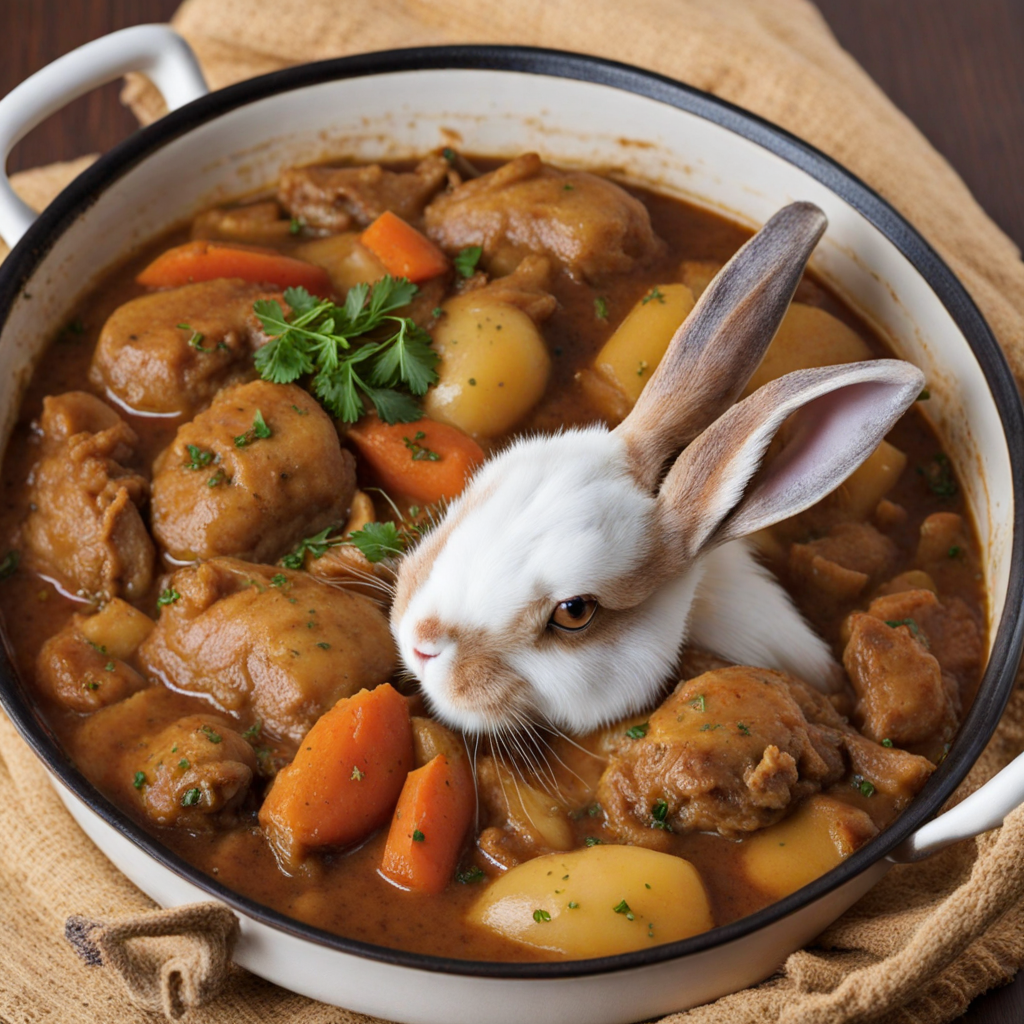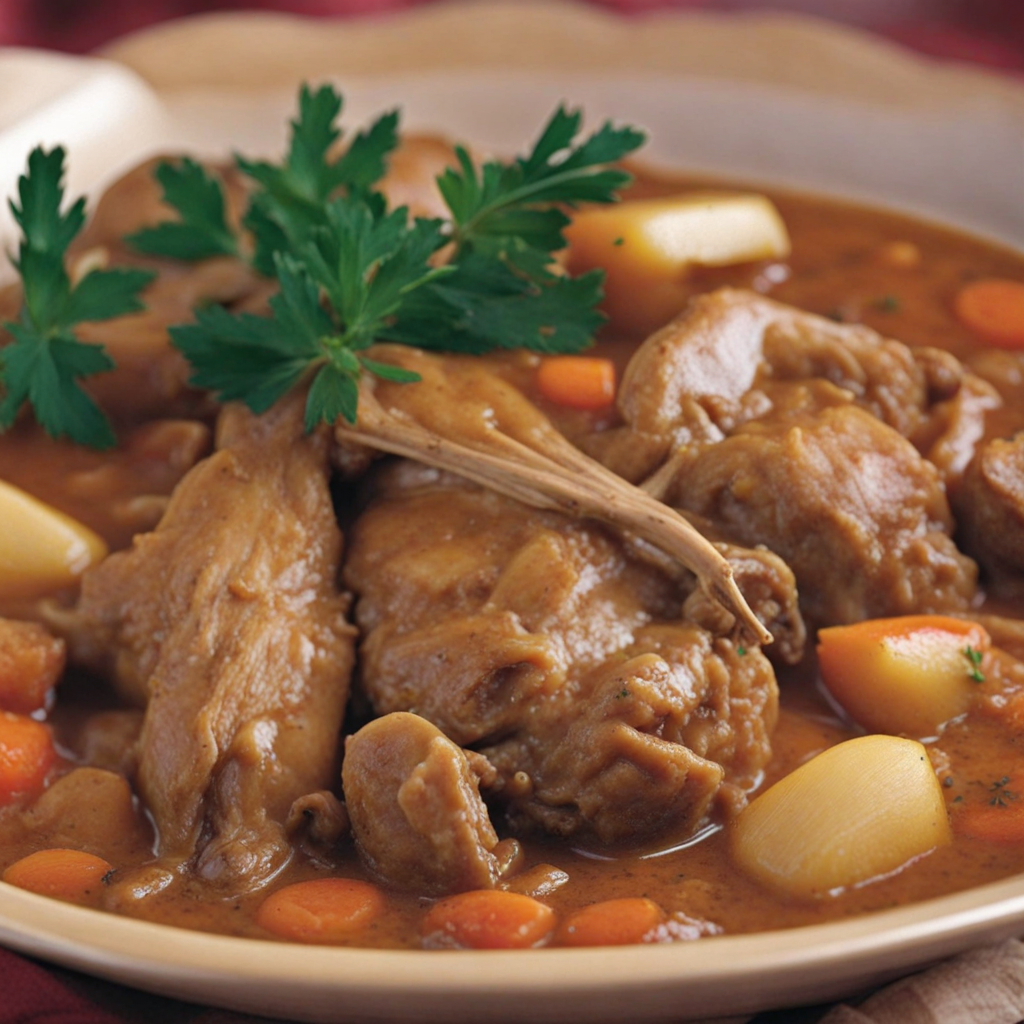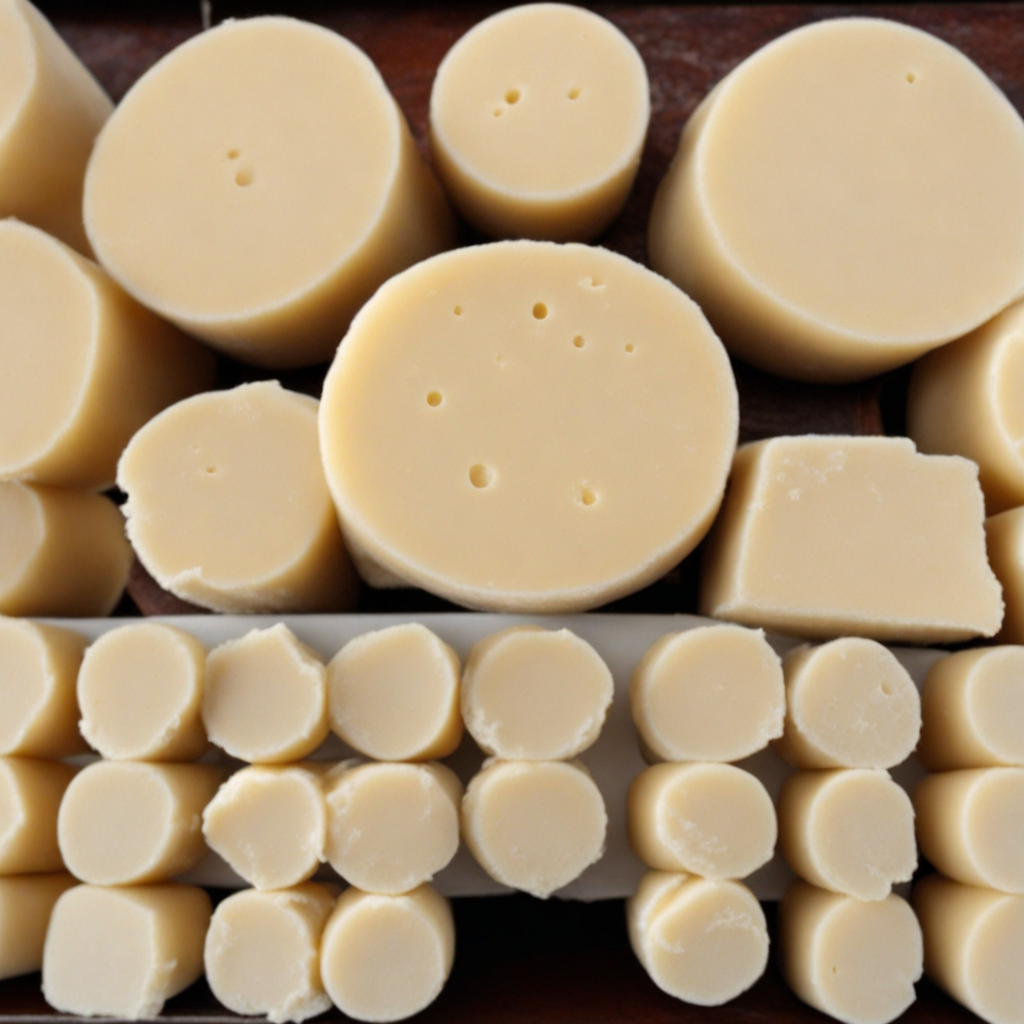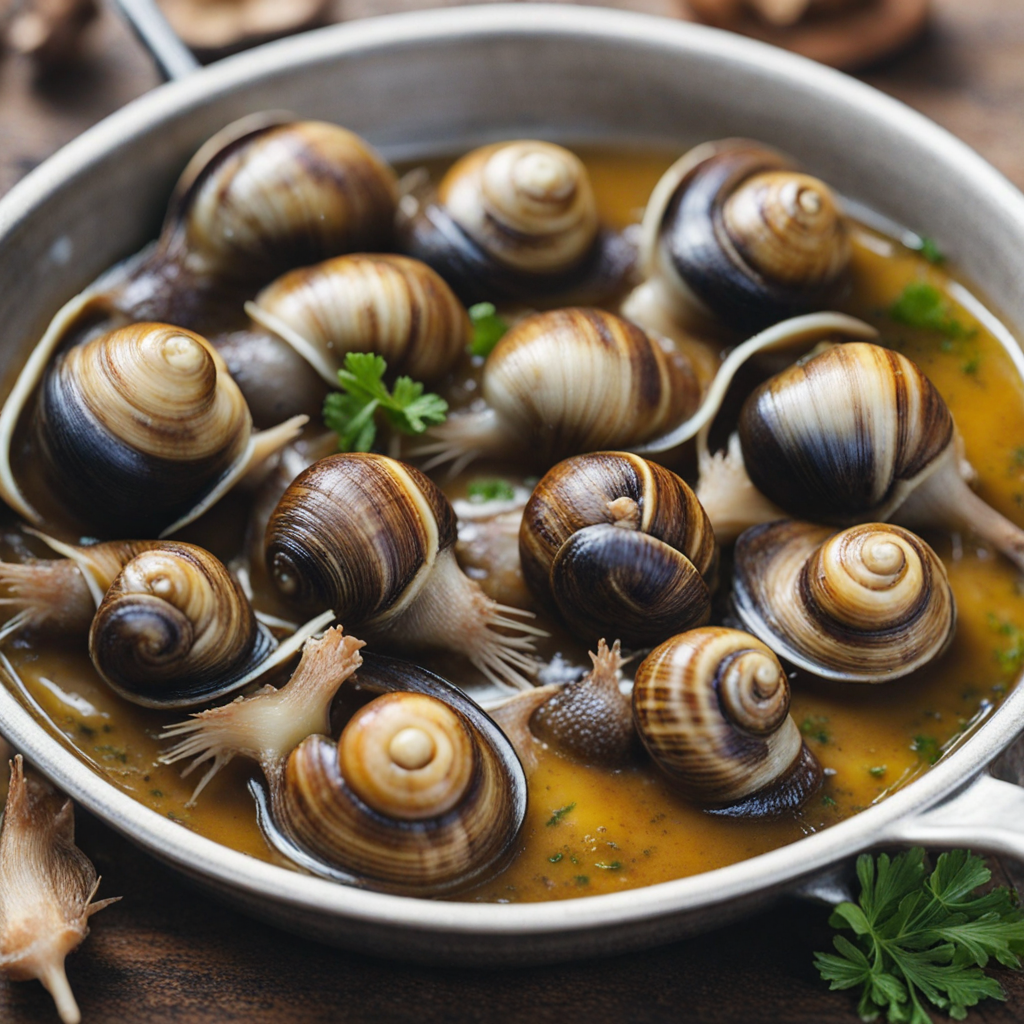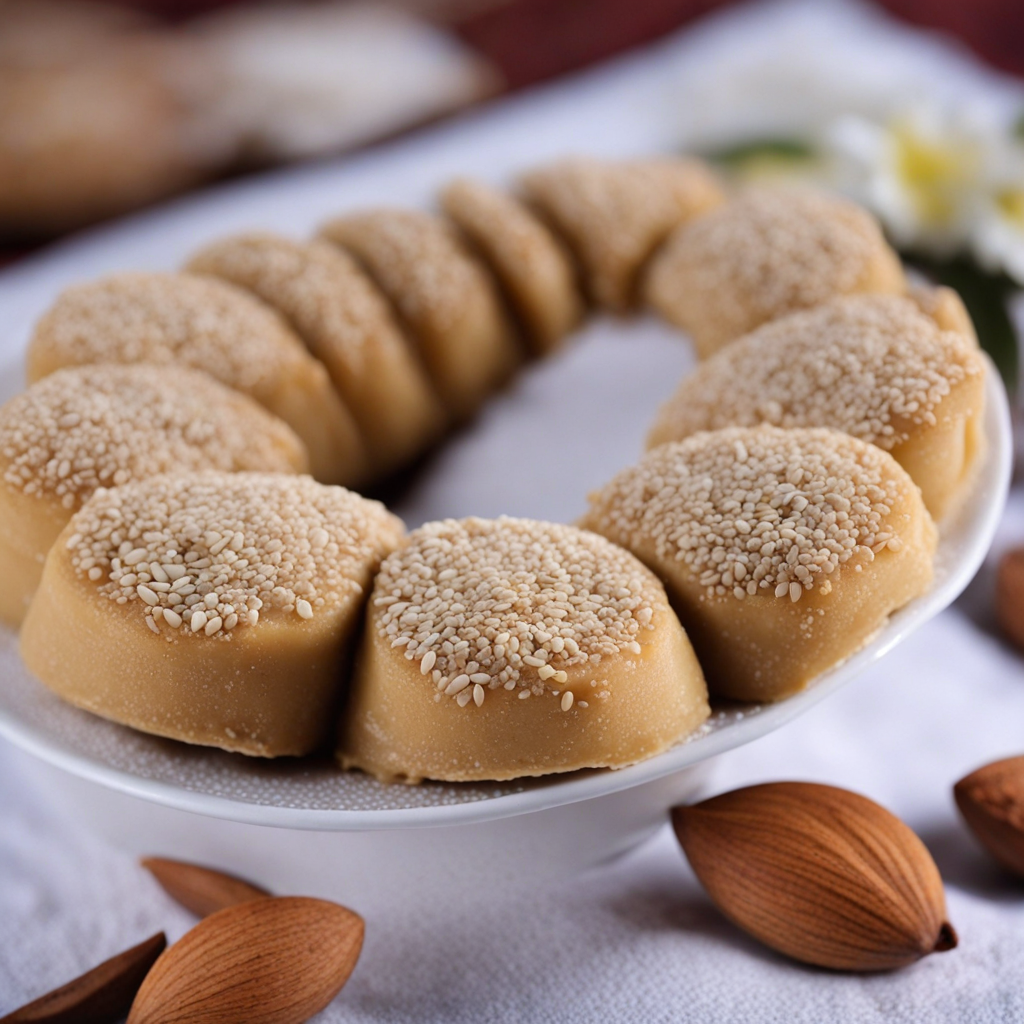Rabbit Stew
Rabbit Stew, known as 'Fenkata' in Malta, is a traditional dish that showcases the island's rich culinary heritage and love for locally sourced ingredients. The stew is typically made with tender rabbit meat, which is marinated in a mixture of red wine, garlic, and a blend of aromatic herbs like bay leaves, thyme, and oregano. This marination not only infuses the meat with deep flavors but also tenderizes it, making each bite melt in your mouth. The dish is often simmered slowly, allowing the juices to meld together and create a hearty, flavorful broth that is both comforting and satisfying. As the stew cooks, it becomes a vibrant medley of colors and textures. Chunks of rabbit are accompanied by a variety of vegetables, such as potatoes, carrots, and peas, each contributing their unique essence to the dish. The addition of olives and capers brings a briny contrast that elevates the overall taste profile. The combination of these ingredients creates a rustic yet refined meal that is perfect for sharing with family and friends, often served with crusty bread to soak up the delicious sauce. In Malta, Fenkata is more than just a meal; it is a cultural experience often enjoyed during special gatherings and festivities. The stew is typically paired with a robust local wine, enhancing the flavors and making for a truly memorable dining experience. The warmth and richness of Rabbit Stew make it a beloved dish that reflects the island's culinary traditions and the Maltese passion for good food. For anyone seeking to explore new tastes, Rabbit Stew is a delightful introduction to the vibrant and diverse flavors of Maltese cuisine.
How It Became This Dish
The Culinary Journey of Fenkata: Malta's Beloved Rabbit Dish Fenkata, the traditional Maltese rabbit dish, is more than just a meal; it is a cultural emblem that encapsulates the history, traditions, and communal spirit of Malta. This dish, which showcases the island's rich agricultural past and rustic cooking methods, has evolved significantly over the centuries, reflecting the influences of various cultures and the resilience of the Maltese people. #### Origins: The Early Days of Rabbit Hunting The history of Fenkata can be traced back to the days when rabbits were domesticated, which dates back to ancient times. Rabbits, native to the Mediterranean region, were abundant and became a staple source of protein for the Maltese population. The earliest references to rabbit hunting in Malta can be found in the writings of the Knights of St. John, who ruled the islands from 1530 to 1798. These knights, known for their chivalric values and strong ties to agriculture, encouraged local farmers to raise rabbits for both sustenance and sport. The term "Fenkata" itself derives from the Maltese word "fenka," meaning rabbit. Traditionally, Fenkata was not merely a dish but an event—a communal feast that brought friends and families together, often held to celebrate special occasions or simply to enjoy the fruits of a successful hunt. The preparation of Fenkata was an art form, passed down through generations, with families often boasting their own secret recipes. #### Cultural Significance: More Than Just a Meal Fenkata occupies a special place in Maltese culture. It is emblematic of the island’s agrarian roots and the strong community bonds that have characterized Maltese society for centuries. The dish is often associated with local festivities and family gatherings, particularly during the feast of St. Paul, Malta’s patron saint. During these celebrations, families would prepare large quantities of Fenkata, inviting neighbors and friends to partake in the feast. The communal aspect of Fenkata is significant; it transcends mere dining. The preparation and consumption of the dish foster a sense of togetherness, reinforcing social ties and cultural identity. In rural areas, Fenkata often represents the culmination of a day spent hunting, and the meal itself is a tribute to the day's efforts. The act of sharing this dish is a celebration of the land and the labor involved in producing it. #### Ingredients and Preparation: A Rustic Tradition The classic preparation of Fenkata involves marinating the rabbit in a mixture of red wine, garlic, and herbs, including rosemary and bay leaves, which infuses the meat with rich flavors. The rabbit is then slow-cooked, typically in a clay pot or traditional Maltese oven called a "fenkata pot," allowing the meat to become tender while absorbing the aromatic juices. Potatoes, olives, and tomatoes are often added to the pot, creating a hearty one-pot meal. The simplicity of the ingredients reflects the resourcefulness of the Maltese people, who have long relied on what their land produces. The dish is often served with crusty Maltese bread, providing a perfect accompaniment to soak up the rich sauce. Over time, variations of Fenkata have emerged, with some recipes incorporating local spices or even more modern twists, such as the addition of chili for heat. However, the essence of the dish remains unchanged, and it continues to be celebrated for its authenticity and deep-rooted connection to Maltese culture. #### Development Over Time: A Culinary Evolution As Malta's political and social landscape evolved, so too did the preparation and perception of Fenkata. The island's strategic location in the Mediterranean made it a melting pot of cultures, with influences from Italian, North African, and British cuisines shaping local food practices. While these influences introduced new ingredients and culinary techniques, the core identity of Fenkata remained steadfast. In the 19th and 20th centuries, particularly after World War II, Malta underwent significant changes that impacted traditional foodways. Urbanization and modernization led to shifts in dietary patterns, and many families began to rely more on convenience foods. However, despite these changes, Fenkata endured as a cherished dish, symbolizing a connection to heritage and tradition. In recent decades, there has been a revival of interest in traditional Maltese cuisine, with chefs and home cooks alike rediscovering and reinterpreting classic recipes. This resurgence has led to Fenkata being featured prominently on restaurant menus, often served in a more refined manner while still honoring its rustic roots. The dish has also gained recognition in culinary tourism, attracting visitors eager to experience authentic Maltese flavors. #### Fenkata in Modern Malta: A Culinary Symbol Today, Fenkata is more than just a dish; it is a symbol of Maltese identity and pride. It embodies the spirit of sharing, community, and the celebration of local ingredients. Festivals dedicated to Maltese cuisine often highlight Fenkata as a star attraction, showcasing not only its preparation but also the stories and traditions that accompany it. Moreover, the rise of social media has allowed for a greater appreciation and visibility of traditional dishes like Fenkata. Food bloggers and influencers share their experiences of enjoying the dish, often highlighting its cultural significance and the stories behind its preparation. This digital age has given a new platform for Fenkata, ensuring that it remains relevant and cherished among younger generations. #### Conclusion: A Dish Rooted in Tradition and Community Fenkata stands as a testament to Malta's rich culinary heritage, a dish that encapsulates a wealth of history, culture, and community. From its origins as a humble meal prepared after a day of rabbit hunting to its status as a celebrated dish in modern Maltese cuisine, Fenkata continues to thrive as a symbol of resilience and connection among the Maltese people. As Malta evolves and faces new challenges, the tradition of Fenkata endures, reminding both locals and visitors of the importance of heritage, community, and the simple joy of sharing a meal with loved ones. In a world that often seems rushed and disconnected, Fenkata invites us to slow down, gather around the table, and celebrate the flavors and stories that make us who we are.
You may like
Discover local flavors from Malta


